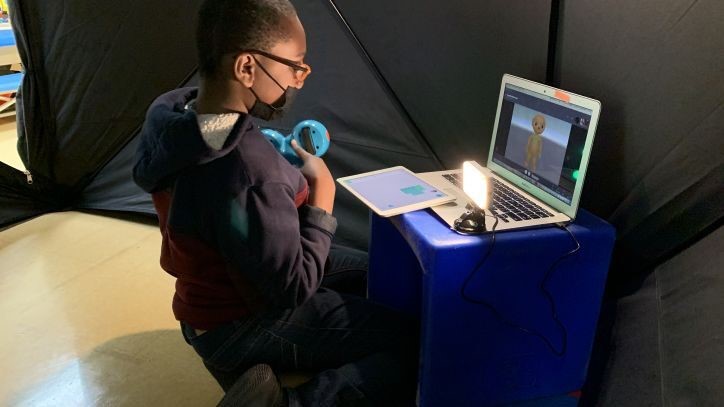Florida Wins $2.5 Million Grant for AI Research in Autism Therapy

What happens when the US Department of Education gives inventive researchers in special education, computer science, and charter schooling a $2.5 million dollar grant?
Meet Zoobee!
Powered by AI, Zoobee is a friendly teddy bear whose purpose is to help children with autism develop more emotional and social awareness, a primary goal in ABA therapy near me. University of Central Florida (UCF) researchers who developed this concept specifically hope Zoobee’s modeling of emotions will help children with ASD be more aware of their own emotions, the implications of their actions in social interactions, and non-verbal social cues from others.
While children are interacting with Zoobee, they are wearing a biometrics watch that is able to measure their comfort or stress levels. While Zoobee is teaching students coding lessons, the bigger lesson is the teddy bear’s constant modeling of emotions and social interactions.
How Zoobee Teaches Children with ASD
UCF has partnered with the charter school Unlocking Children’s Potential (UCP) of Central Florida to be the primary research site for Zoobee. Zoobee is already making friends on campus, including with a nine-year old named Aiden.
Aiden and other children with ASD are interfacing with Zoobee as their emotional coach. Designed to showcase emotions, Zoobee explains each feeling and what the emotion may look like. One of the ways Zoobee models emotions is literally through its heart. When Zoobee’s emotions change, the color of its heart will change. Green means Zoobee is happy. Blue, of course, is sad. Red is mad. And if Zoobee is worried, his heart glows yellow.
In one session, Aiden intentionally made Zoobee angry, just to see the change that would occur. This was greatly encouraging for researchers to see, as it signified Aiden’s understanding of his actions impacting other people’s emotions. It was considered a very “nonthreatening way” for an autistic child to see how hurtful comments can really impact others, as UCF professor Rebecca Hines explained. Aiden eventually apologized to Zoobee.
Hines further explained, “Technology can be a much more comfortable environment for students with autism.” Because children with autism appreciate routine and predictability, technology can provide that type of environment. The consistency and predictability create a Zoobee’s World that the children feel comfortable in.
From Learners to Teachers
Children with ASD are generally more open when using technology, as observed by UCF autism disorder specialist Joanna Couch. AI “can definitely become a helpful resource in making them feel more included,” she said. Because technology is predictable – a trait that brings comfort to those with autism – they will automatically feel more comfortable with the device.
In the second phase of Zoobee, a child with ASD will actually become a coach in coding to a peer who does not have any disabilities. When a child with autism is given an elevated spot in leadership, this provides great motivation to put their communication to good use. It is hoped that encouraging the use of verbal and non-verbal communication skills will also help them build new relationships.
The goal of Zoobee is to help provide as much independence as possible for the child, all while he or she is learning basic coding skills.
The Timeline
For the first year, the researchers will be working with students with ASD who are in the third, fourth and fifth grades. As the program expands, it will be tested at 10 schools throughout Florida.
Should the research all go well, Zoobee will be offered for free as an open-access program any school can use. This is great news for ABA therapy, whose main goal is to increase awareness emotionally and socially through teaching “social skills.” A friend like Zoobee at school is the perfect support for ABA therapy that’s done after school. We are excited to see the findings of this research and have tremendous appreciation for the US Department of Education, UCF and UCP for this innovative project!
The project is co-led by professors Dr. Rebecca Hines and Dr. Lisa Dieker. Hines was the co-leader of the team that created UCP of Central Florida’s charter and is especially interested in working in special education. Her co-leader Deker has a special research interest in collaboration between special and general education, along with providing STEM opportunities for students with disabilities.


